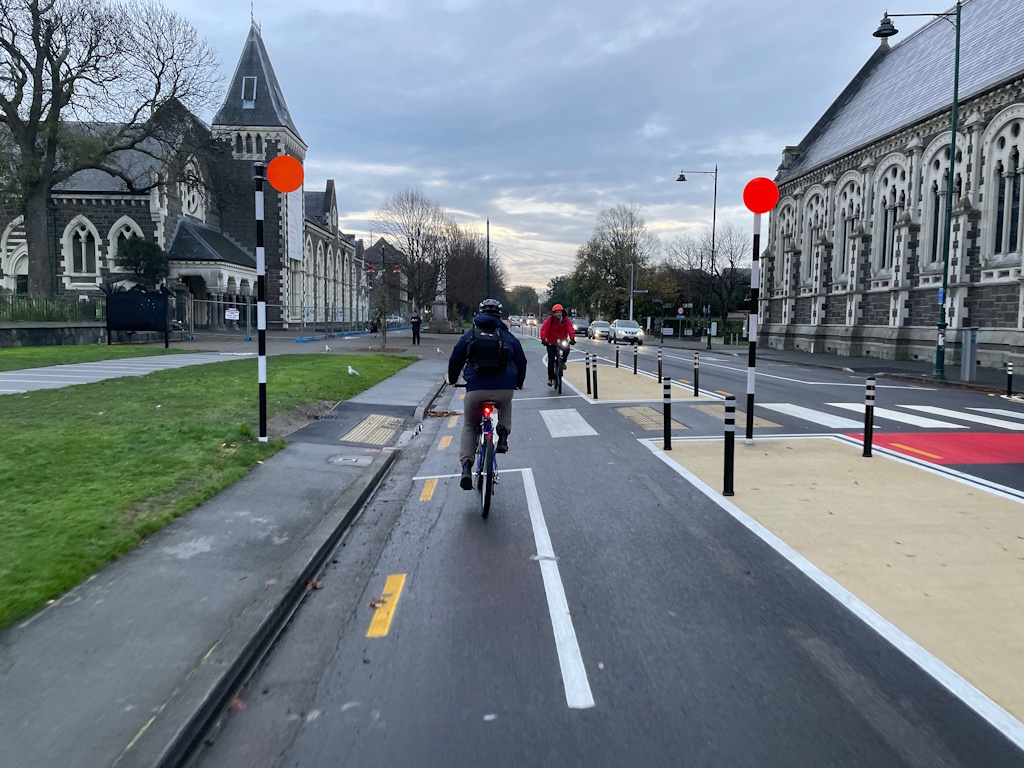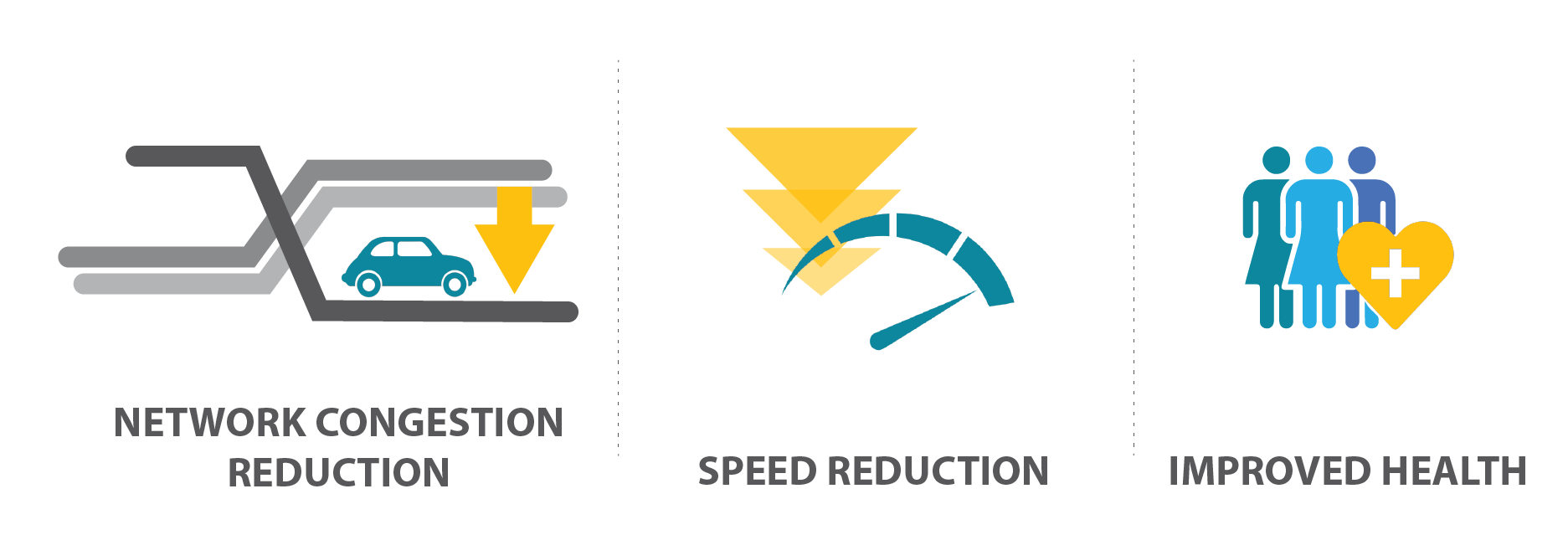VKT impacts of road space reallocation
Objective
Client
Location
Deliverable
Timeframe
Project Status
Background
This research for NZTA investigated the measured network vehicle-kilometres-travelled (VKT) impacts of permanent road space reallocation (RSR), the quantified overall network effects, and the factors required for successful net VKT reduction. RSR is defined as permanent reallocation of existing road space from general traffic to active or public transport modes. This could affect road corridor elements, such as traffic lanes, parking lanes, cycle lanes, bus lanes and footpaths.
A systematic review of relevant local and international literature and case studies identified several factors required for successful and sustained implementation of network VKT reduction from permanent RSR. Many of these factors related to processes not involving the actual physical infrastructure. There was good evidence of VKT reductions (and associated positive outcomes) on intervention roads, but more moderate evidence of network-wide reductions; more research is required to confirm this promising trend.
An assessment of the impact of permanent RSR on the five indicators in the New Zealand transport outcomes framework (Ministry of Transport, 2018) found that the outcomes of ‘healthy and safe people’ and ‘inclusive access’ are most likely to see immediate (or medium-term) effects from RSR measures.
Recommended RSR best practice that might be implemented in New Zealand to support network VKT reduction include involving multiple streets as part of a network-wide treatment, getting good engagement and data upfront, looking at the relative changes to users of other modes, and having a nearby ‘control site’ to determine whether traffic has ‘disappeared’ or simply diverted to other streets.





